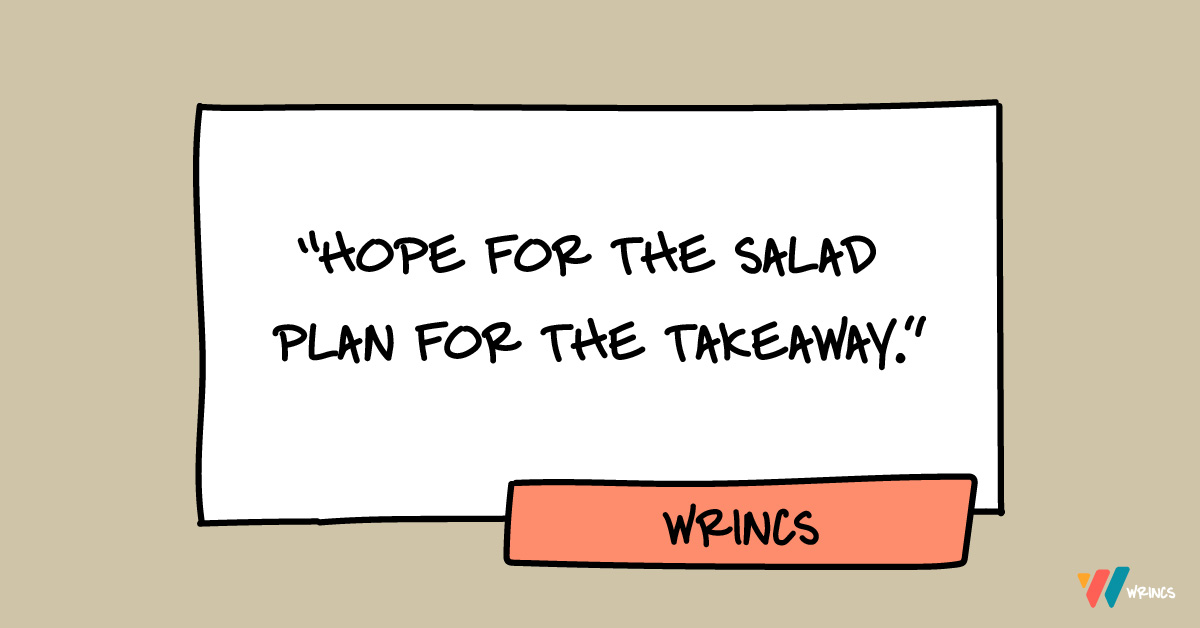I previously wrote a post, What You Can And Can’t Eat During Pregnancy, that explored exercise, leisure activities and a few other things. Now I want to cover additional nutritional considerations during pregnancy. This includes supplements and any nutritional values we should be aware of having too much or too little of.
I Am Not An Expert – This Is Not Advice
Disclaimer: I’m not an expert and don’t know what I’m doing. Even official advice can vary in different parts of the world. This is not an “Ultimate Guide To Everything You Can and Can’t Do When Pregnant”. This is just me and my wife picking the next logical thing to figure out, researching it as best we can and writing it here to organise our thoughts. If it’s helpful to anyone, great. But, please do your own research, speak to professionals (when possible) and don’t be offended if we didn’t come to the same conclusions you did. Please let me know if you have advice or disagree. Try not to call me names if I’ve said something stupid, but if it entertains you, I can take it, so make it good.
We’re doing this research together (when Mrs Wrincs feels well enough – which, lately, hasn’t been often) and I’m just the one who’s posting it.
Vitamins, Supplements and Nutrition in Pregnancy
NHS
You can read the full Vitamins, Supplements and Nutrition in Pregnancy article on the NHS website here.
Folic Acid in Pregnancy
When you’re pregnant, or there’s a chance you might get pregnant, it’s important to also take a folic acid supplement.
It’s recommended that you take 400 micrograms of folic acid every day – from before you’re pregnant until you’re 12 weeks pregnant. This is to reduce the risk of problems in the baby’s development in the early weeks of pregnancy. If you want to get your folic acid from a multivitamin tablet, make sure the tablet does not contain vitamin A (or retinol).
Try to eat green leafy vegetables which contain folate (the natural form of folic acid) and breakfast cereals and fat spreads with folic acid added to them. It’s difficult to get the amount of folate recommended for a healthy pregnancy from food alone, which is why it’s important to take a folic acid supplement. Folic acid can help prevent birth defects known as neural tube defects, including spina bifida.
If you have a higher chance of your pregnancy being affected by neural tube defects, you will be advised to take a higher dose of folic acid (5 milligrams).
Vitamin D in Pregnancy
It is also recommended that you take a daily Vitamin D supplement. You need 10 micrograms (400 IU) of vitamin D each day and should consider taking a supplement containing this amount between September and March.
You may have been indoors more than usual this year due to Covid-19 restrictions.
Vitamin D regulates the amount of calcium and phosphate in the body, which are needed to keep bones, teeth and muscles healthy.
Because vitamin D is only found in a small number of foods, whether naturally or added, it is difficult to get enough from foods alone. Our bodies make vitamin D when our skin is exposed to summer sunlight. If you’re in the sun take care to cover up or protect your skin with sunscreen before you start to turn red or burn. The longer you stay in the sun, especially for prolonged periods without sun protection, the greater your risk of skin cancer.
Do not take more than 100 micrograms (4,000 IU) of vitamin D a day as it could be harmful.
Iron in Pregnancy
If you do not have enough iron, you’ll probably get very tired and may suffer from anaemia.
Lean meat, green leafy vegetables, dried fruit, and nuts contain iron.
If you’d like to eat peanuts or foods that contain peanuts (such as peanut butter) during pregnancy, you can do so as part of a healthy, balanced diet unless you’re allergic to them or your health professional advises you not to.
Vitamin C in Pregnancy
Vitamin C protects cells and helps keep them healthy.
It’s found in a wide variety of fruit and vegetables, and a balanced diet can provide all the vitamin C you need.
Calcium in Pregnancy
Calcium is vital for making your baby’s bones and teeth. Sources of calcium include:
- milk, cheese and yoghurt
- green leafy vegetables, such as rocket, watercress or curly kale
- tofu
- soya drinks with added calcium
- bread and any foods made with fortified flour
- fish where you eat the bones, such as sardines and pilchards
Vegetarian, Vegan and Special Diets in Pregnancy
A varied and balanced vegetarian diet should provide enough nutrients for you and your baby during pregnancy.
But you might find it more difficult to get enough iron and vitamin B12.
If you’re vegan or you follow a restricted diet because of a food intolerance (for example, a gluten-free diet for coeliac disease) or for religious reasons, talk to a midwife or GP.
Other Research
Protein in Pregnancy
Protein has a vital role during pregnancy because it helps your baby grow normally while contributing to other important areas of their development, including:
- Growth and repair of new and damaged tissues.
- Making antibodies for their immune system.
- Making hormones and enzymes.
- Helping muscles function properly.
- Transporting oxygen through their blood.
The Reference Nutrient Intake (RNI) of protein for adults is 0.75g per kg of body weight (or 0.34g per pound of body weight) per day, plus an additional 6g per day for pregnant women.
So, for a woman weighing 60 kg, they will need: 60 x 0.75g/d = 45g of protein a day and 51g during pregnancy.
Or for a woman weighing 132 lbs, they will need: 132 x 0.34g/d = 45g of protein a day and 51g during pregnancy.
Omega 3 in Pregnancy
Omega 3 supplements can help you have a full-length pregnancy (from the NHS). The supplements also help babies to grow to a healthy weight in the womb.
Make sure you don’t confuse a cod liver oil supplement for omega 3 (or fish oil). Cod liver oil contains vitamin A. Too much of which can harm your baby.
Fibre in Pregnancy
Fibre is quite important for the digestive health of everyone. But, getting enough fibre becomes absolutely essential when you are pregnant. Due to the hormone-slowed digestive system and organ-displacing womb, many pregnant women will experience constipation. This can also lead to hemorrhoids. Consuming lots of fibre can help fight off constipation and keep you regular, which also goes a ways toward preventing hemorrhoids.
The average adult should be getting at least 30g of fibre per day (from the NHS), whether pregnant or not.
A Little More Info On Constipation in Pregnancy
You can read the full Constipation article on the NHS website here.
Try Changing Your Diet
Drink plenty of fluids. Aim for 1.5-2.5L or 50-80fl.oz.
Eat more high-fibre foods like wholemeal bread, bananas, baked potatoes, baked beans, wholegrain rice, fruit, vegetables and nuts.
Improve Your Toilet Routine
Keep to a regular time and place and give yourself plenty of time to use the toilet. Do not delay if you feel the urge to poo.
To make it easier to poo, try resting your feet on a low stool while going to the toilet. If possible, raise your knees above your hips.
Consider Increasing Your Activity
A daily walk or run can help you poo more regularly.
You could try yoga or one of the other exercise options in my What You Can and Can’t Do During Pregnancy post.
A Little More Info On Vitamin D and Skincare in Pregnancy
I’ve heard and read people claim that they want to go without sunscreen so they can get enough vitamin D. I’m not going to cover the dangers of sun damage and not wearing enough (or good enough quality) sunscreen. However, a great article from skincancer.org provided this simple quote:
“Studies have never found that everyday sunscreen use leads to vitamin D insufficiency. In fact, people who use sunscreen daily can maintain their vitamin D levels.”
Most vitamin D supplements contain 10 micrograms and the upper limit is 100micrograms. So, it seems logical to just take a supplement and wear sunscreen when you go outside.
There’s No Need To “Eat For Two”
From the NHS – You might find that you’re more hungry than usual, but you don’t need to “eat for 2” – even if you’re expecting twins or triplets.
Try to have a healthy breakfast every day, because this can help you to avoid snacking on foods that are high in fat and sugar.
Eating healthily often means focusing on different foods you eat, for variety, rather than cutting out all your favourites. You don’t need to achieve this balance with every meal, but try to get the balance right over a week.
Pregnancy Vitamins
Using the information gathered while conducting this research, we believe there are plenty of pregnancy vitamins worth taking. There’s no need to feel limited to the best-known brands.
How Mrs Wrincs Feels
Mrs Wrincs feels this is manageable as long as she can keep a supplement down. We originally found a pregnancy vitamin, sold in Asda (UK), which ticked all the boxes. But, as soon as we found it, they stopped selling it. Tesco has one that’s equally good and a fraction of the price of some of the big brand options. It contains folic acid, vitamin D, iron, vitamin C and Calcium. It also doesn’t contain vitamin A and comes with omega 3 capsules.
She already struggled to get enough protein and fibre in her everyday diet and she’s trying to improve on this.
We both agree with the advice that “there’s no need to eat for two”, but that doesn’t mean she’ll be making a big effort to restrict her calorie intake. Especially where she’s been struggling with sickness, if she starts to feel a lot better and has a significant appetite and wants a lot of comfort food and takeaways, I’ll be picking it up and cheering her on.
Everyone’s Different
Just to reiterate: This is not intended to be a guide. Just a log and breakdown of the information we’ve found and how we’ve interpreted it. I’m not an expert (very far from it); I’m just doing my best for our new family. If it’s useful to anyone, that’s great. This is not the “right answer”. This is just how an idiot and his wife approached a complicated topic.
Next Pregnancy Post: What You Should Know About Morning Sickness
Previous Pregnancy Post: What You Can and Can’t Do During Pregnancy
First Pregnancy Post: I’m Pregnant. Now What?

